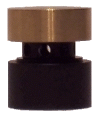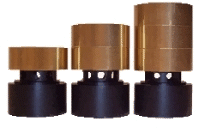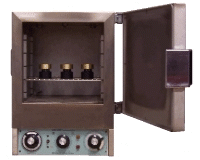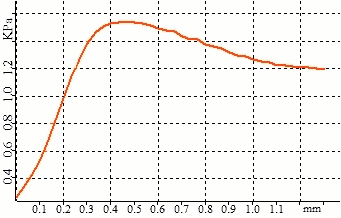The unconfined yield strength of a powder or granular material typically increases the longer it is under the major consolidation stress. For this reason, it is very important to measure the time unconfined yield strength for materials that will be stored for any length of time.
| The EVOLUTION Powder Tester measures the time unconfined yield strength of a material by applying pressure to a sample over time. First, the material is loaded into a sample cell. |  |
 |
Then, the sample is compressed by vertical pressure applied from a weight or weights. Each weight delivers 2.5 KPa. |
| The material is then left for hours or days under controlled conditions to allow the major consolidation stress to act on the material for a specific period of time. These controlled conditions include temperature and humidity. The sample cells are small enough and stable enough to be put in ovens and humidity chambers or simply on laboratory shelves. |
|
After the material is compressed, the sample is then automatically removed from the sample cell and force is applied to the top of the sample to break or fail the material. The maximum force recorded when breaking the material is the unconfined yield strength.
|
Break Stress versus Break Strain |
A plot of the time unconfined yield strength versus the major consolidation stress is typically called the time flow function. The time flow function is measured by applying a different number of weights to different sample cells. Each Evolution cell weight corresponds to 5 KPa.

Typically powders and granular materials gain strength as they are exposed to major consolidation stress over time.

